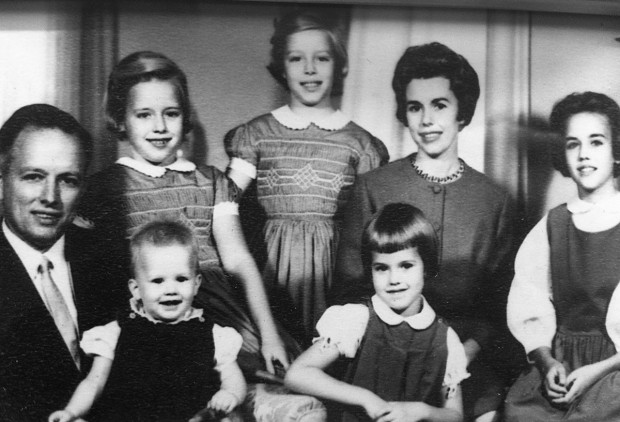Dr. Dad: A Father’s Day Tribute

I grew up a shoeless child of a shoemaker. Not exactly. But having a doctor for a dad, it sometimes felt that way. Like when I complained for two weeks in high school about a sore throat, only to hear, “You’re fine. Here’s a cough drop,” eventually winding up in the emergency room with a throat swollen enough to block my breathing.
The good part is that I rode to the hospital in the back seat of the car with my ophthalmologist dad and his ENT friend in the front seat, the hospital on alert for our arrival. In the crisis, I got the best care available. I guess you could say I got the Jimmy Choos.
Legendary heart surgeon Denton Cooley’s five daughters can relate.
“Everything my dad did at the hospital was an emergency with lots of blood,” Weezie Cooley Davis says. Weezie’s sister, Mary Cooley Craddock, adds that her father is famous among his daughters for saying, “If someone’s not dying, it’s not an emergency.”
“We definitely weren’t coddled,” Weezie says. “After getting our immunizations, we didn’t really go to doctors. Daddy was our dermatologist, our family practitioner, everything.”
Such is life for children whose fathers see true emergencies every day. (We know moms are doctors too, but we’ll stick with dads for Father’s Day.) In the Cooley family there must have been something special going on, because of five daughters and 16 grandchildren, nine of Denton Cooley’s offspring have entered medicine.
Weezie, an ophthalmologist, remembers listening to her dad dictate cases with her sisters. She remembers being her dad’s sidekick at the hospital, first for rounds and then, as a teenager, for surgeries. “The nurses knew to watch me because every time I’d turn pale and have to sit in the corner.”
Mary also joined ranks as a medical artist. What she remembers is her dad’s work ethic.
“Some dads golfed or hunted, but my dad worked,” Mary says. “He’d leave at 6 in the morning and wouldn’t come home until 9:30 or 10. But whenever he had free time, he spent it with us.”
They both say their dad is tireless, “an Energizer Bunny,” in Weezie’s words. “My dad says sleeping is a waste of time.” (It must be med-school training. My dad’s motto is, similarly, “I’ll sleep when I’m dead.”)
Jenny Guss, a doctor and a daughter of a cardiologist, used the same “Energizer Bunny” description about her dad. She cites her dad’s work ethic as the impetus to her becoming an internist.
“My dad’s work ethic was always apparent without him ever talking about it,” Jenny says. “Our family deliberately lived five minutes from the hospital. That way, Dad [New Jersey cardiologist Stephen Guss] was never more than five minutes away from his family or his patients.
“If we were snowed in [Jenny grew up in New Jersey], he would cross-country ski to work. During the blackout a few years ago, he walked.”
Jenny says watching that dedication, and listening to the caring tone her dad used when talking on the phone to patients, made a lasting impact on her. “I watched my father help people feel better, whether that was saving their lives or, when things didn’t work out, helping them through hard times. When I worried about medical school, he told me not to worry about whether or not I was good in science, but to worry about caring for people.”
While Stuart Rosenberg didn’t go into medicine (he owns a public relations firm), he remembers listening to his dad, family practitioner George Rosenberg , diagnose patients over the phone. As a result, Stuart says, “I became an armchair doctor. My parents would get so mad because I’d diagnose myself with the flu or whatever and then self-prescribe with drug samples we had around the house.
“Our healthcare was kind of random. I wasn’t getting checkups like my friends. It was a lot of, ‘Shake it off, you’re fine.’”
And then there were perks. Weezie, Stuart and I all remember being among the first families to have cell phones. Nothing pocket-sized, but big boxes with cords that took up half the car’s back seat.
Beyond jokes about growing up medically deprived, beyond work ethics, beyond prescription perks, one thing stands out for doctors’ children: the pride we all feel when someone says, “Your dad saved my life.”
In Stuart’s words, “That’s what was so great about having my dad for a dad.”
To all the dads, doctors and otherwise, Happy Father’s Day.
Want more buzz like this? Sign up for our Morning Buzz emails.
To leave a comment, please log in or create an account with The Buzz Magazines, Disqus, Facebook, or Twitter. Or you may post as a guest.



